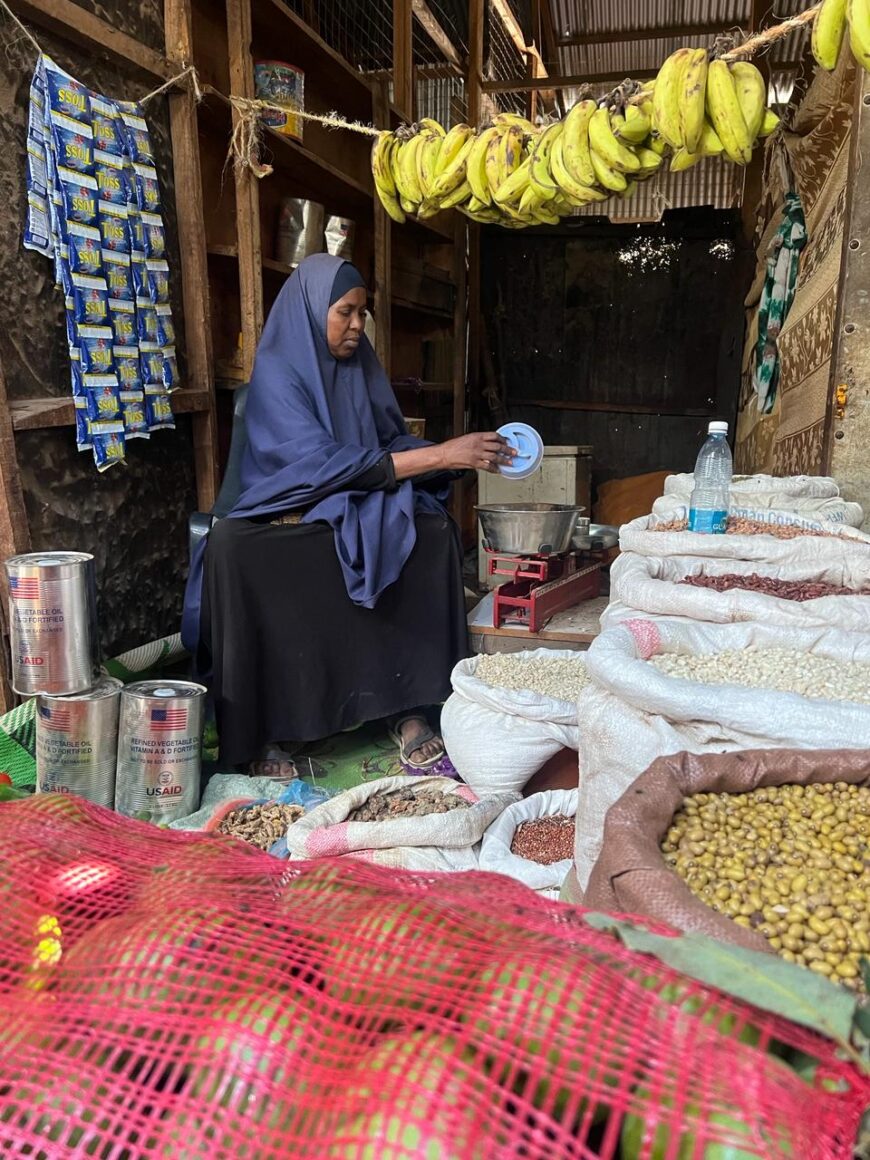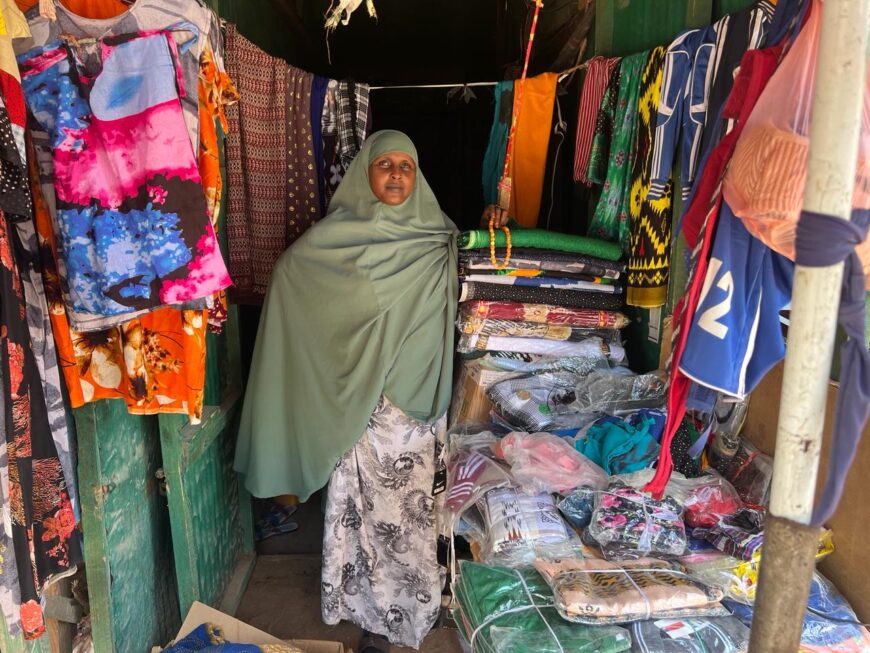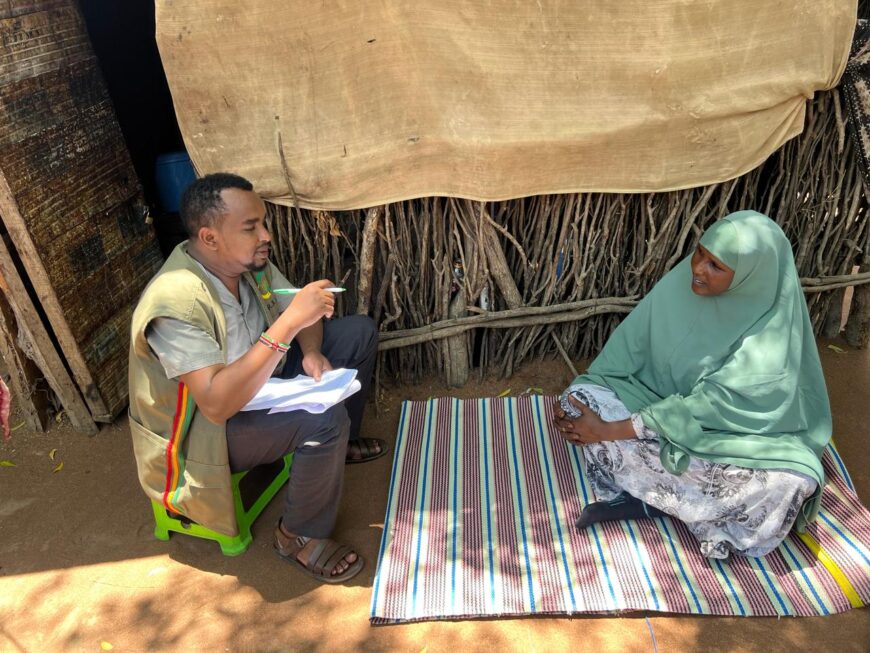Recent data indicates that the number of refugees and asylum seekers in the Dadaab and Kakuma internally displaced persons (IDPs) camps has increased to 321,000 and 272,000 respectively. The total now stands at 692,000¹ when another 99,000 in urban areas are added to this statistic. These numbers are projected to continue rising due to the influx of refugees from countries such as Ethiopia, South Sudan, and Somalia, among others.
The refugees are fleeing their countries due to the devastating effects of drought, while conflict in their homelands is also pushing them away from their homes.

The European Union (EU) through DG ECHO provided support for an 8-month project called Kenya Cash Consortium – Locally-led Multi-Purpose Cash Response to Crisis-affected Communities in Kenya. The project aimed to address the food and basic needs of undocumented individuals in Kenya’s refugee camps. In the Dadaab refugee Complex, Acted partnered with the Relief, Reconstruction and Development Organization (RRDO), which is one of the partners under the Asal Humanitarian Network (AHN), to implement multi-purpose cash transfers to newly arrived families who lack assistance from other programs until they are fully registered.
A new start for refugees in Dadaab
Hagale Dubat* is a 42-year-old woman from Hagardera, a town located in Dadaab Refugee Camp, Garissa County. She is a registered beneficiary of the multipurpose cash assistance project. Hagale is a mother of 8 children, including 2 girls and 6 boys. Life was tough for her family before receiving the cash assistance. Her husband’s health had deteriorated, and they faced many challenges due to insecurity and drought, which ultimately led them to relocate to Kenya’s Dadaab refugee camp.
Before receiving the cash assistance, Hagale was a stay-at-home mother and relied on her husband’s income. She struggled to pay for her children’s madrasa fees and could barely afford two or three meals a day.
Before receiving the cash assistance, life was tough for my family. We struggled to afford enough food, pay for our children's education and Madrassa fee.
After receiving four cycles of cash assistance, Hagale started her own vegetables and cereals kiosk at the Hagardera market. She is now a successful grocery vendor, providing for her family.
Now, I am a successful vegetable vendor, providing for my family. I am grateful for the generous support. They have truly made a difference in our lives.
Her determination and hard work have paid off, and she hopes that more people in need can receive the same kind of support. Her success story is a testament to the positive impact of the cash assistance program and is truly inspiring.
Restoring resilience to crisis affected refugees

Zeituni Ali* is an exceptional woman who is a registered beneficiary of a locally led Multi-Purpose Cash Response program which supports crisis-affected communities in Kenya. She has faced various difficulties in her life, having to flee from Somalia due to conflicts and now residing in the Hagardera camp. Despite all these challenges, Zeinab remains determined and hopeful.
In the camp, Zeinab is making active efforts towards achieving her goals. She currently runs a small clothing shop in the Hagardera market, which she opened with the help of a cash transfer. This shop serves as her primary source of income and provides her with a sense of independence.
The assistance I've received has truly transformed my life. It has enabled me to support my children and invest in my business. I no longer depend on others, and I can envision a brighter future for my family.
Before receiving the cash assistance, Zeinab and her children faced significant hardships. They struggled to afford enough food and were even at risk of homelessness due to difficulties in paying rent. However, with the cash assistance, their circumstances have improved drastically.

Now, I can provide enough food for my children and pay rent on time. I no longer must worry about them going hungry or being without a home. I am thankful for the support I've received. It has given me hope and the opportunity to build a better future for my children.
Zeinab plans to further develop and expand her small shop into a thriving wholesale business. While she understands that the cash transfers may not continue indefinitely, she hopes for ongoing support to help her sustain and grow her business.
I want to expand my shop and create more opportunities for others in my community. With the right support, I believe I can achieve this.
This project aims at providing food and other necessities to the most vulnerable undocumented individuals in the Dadaab Refugee Camps. The consortium focuses on providing life-saving cash transfers to unregistered persons of concern who are new arrivals to refugee camps.
When people are forced to leave their homes during conflicts or other reasons, they often only take essential items with them and lose the ability to earn money and buy things. Cash-based interventions (CBIs) aim to protect refugees by reducing the risks they face and allowing them to maintain their ability to spend money. CBIs can be used in different contexts if there is a stable market and a secure way to provide vulnerable people with cash.
CBIs offer refugees more flexibility and dignity, as they can use the cash to prioritize and choose what they need most. Furthermore, cash transfers can prevent people in need from resorting to harmful coping mechanisms such as survival sex, child labour, family separation or forced marriage. They also benefit the local economy and can contribute to peaceful co-existence with host communities.
This initiative, supported by the EU and executed by Acted and AHN partners offers a more considerate and honorable form of aid, allowing 1,122 refugee households to prioritize their requirements and make decisions accordingly. Through the provision of monetary transfers, individuals in need are less likely to resort to detrimental coping mechanisms such as engaging in survival sex, exploiting child labor, experiencing family separation, or being forced into marriages. Furthermore, these interventions yield a direct positive impact on the local economy and contribute to fostering peaceful coexistence with the host communities.
*Names have been changed to protect people’s identity.